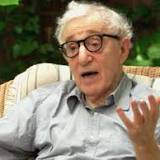The real-life rise and fall of Apple Cider Vinegar's Belle Gibson

“This is a true-ish story based on a lie,” the various characters of Apple Cider Vinegar, Netflix's latest, refreshingly self-aware take on the true crime drama, like to remind us at the beginning of each episode. ("Do you care? Should you?" asks actor Phoenix Raei, who plays PR spin doctor Hek, in one such fourth-wall-breaking moment.) The suggestion is that the show's M.O. isn't to reassemble factual events along a neat timeline, as tends to be the want of docuseries' of its ilk — The Staircase, The Dropout, etc. — but to playfully blur the lines between reality and fiction. It is, however, largely true. Or at least true-ish.
The story is inspired by the non-fiction book The Woman Who Fooled The World, written by the journalists who first exposed the lies of so-called wellness expert Belle Gibson, played in the Netflix series by Booksmart's Kaitlyn Dever. Now a convicted fraudster, Gibson both lied about having brain cancer and the miraculous cure that followed — a dietary regimen that she then peddled to hundreds of thousands of followers on Instagram in the early 2010s. “None of it's true,” the proto-influencer told the Australian Women's Weekly in a 2015 interview (via The Guardian). “I don't want forgiveness. I just think [speaking out] was the responsible thing to do. Above anything, I would like people to say, ‘OK, she’s human.'”
She parlayed her fake diagnosis and recovery into an expansive wellness portfolio — which, along with her 200,000-follower Instagram presence, included a recipe book, website and an app, all titled The Whole Pantry — and positioned herself as a leading lifestyle guru online. It's a similar story to that of Anna “Delvey” Sorokin, the Russian-born con artist who infiltrated American high society on the pretence that she was a rich heiress, as covered in Netflix's previous scam drama Inventing Anna. Both weaponised social media in its nascency to dupe and defraud; Apple Cider Vinegar is as much a reminder of that now-ancient-feeling era as it is Gibson's character study. But then again, in our present moment of image obsession and fake news, it feels just as timely.
In an interview with Netflix blog Tudum, creator Samantha Strauss explained that she didn't want Gibson's story to be the only thing that audiences took away from the series, but also to think about those effected by Gibson's duplicity. Hence why the show folds in a variety of other perspectives, such as that of Lucy (Tilda Cobham-Hervey), who is a fictional amalgam of the women caught in Gibson's online trap. “The story just couldn't exist without showing someone like Lucy,” Strauss said. “She is the real-world consequences.”
Here's another question the show dances around: but why? In episode two, we are offered a window into the strained relationship she has with her mother, played by Geraldine Davis. Gibson and her new partner Clive (Succession's Ashley Zukerman) visit for the first time together, and at dinner, Gibson's mum seems to want to one-up her daughter in conversation; while she shows little interest in Gibson's health, she is happy to bring up her own history with multiple sclerosis.
So the sins of the mother, then? Again, it's hard to untangle fact from fiction. But in the aforementioned Australian Women's Weekly profile, Gibson seemed to place a lot of blame for her behaviour on a challenging childhood, describing how she was forced to do menial domestic tasks as young as five years old.


 United Kingdom
United Kingdom Argentina
Argentina  Australia
Australia  Austria
Austria  Brazil
Brazil  Canada
Canada  Germany
Germany  Ireland
Ireland  Italy
Italy  Malaysia
Malaysia  Mexico
Mexico  New Zealand
New Zealand  Poland
Poland  South Africa
South Africa  United States
United States 
























